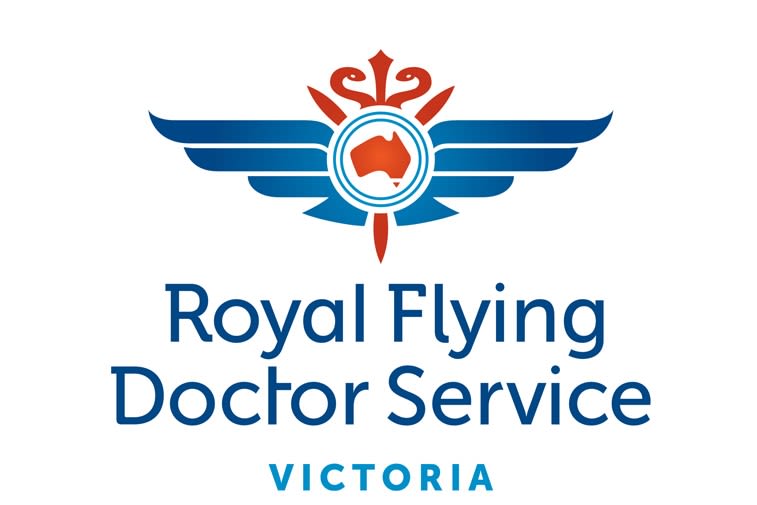Meet Leon Martin: Mental Health Clinician
Throughout his career, Leon Martin has been drawn to work in areas which others might find daunting.

With a wide and varied history of experience, Mental Health Clinician Leon Martin has explored work in in non-profits, high acuity, triage and offshore detention.
When the opportunity to work in country Victoria for the Flying Doctor came up, Leon was ready to take on his next challenge.
“I've always liked a bit of adventure. I enjoy working with people who may not have anyone advocating for them, or who may be a bit marginalised by society,” Leon explains.
“My method is client centered. It’s not about taking a ‘top down’ approach, I’m not like a football coach who tells you what to do, and you do it. You work with someone to figure out what's going to work for them and try to find a tailored fit for everyone.”
Throughout his career, Leon has built relationships with clients by adapting his style to each individual and working in a way that suits them. This adaptability has been put to the test working for the Flying Doctor, with Leon covering large parts of Western Victoria, travelling between towns to deliver consultations in the local community.
And when time or other barriers exist, he is able to provide mental health care via phone or telehealth to ensure that people in remote areas receive the care they need.
“I know in the past clients have had to drive three and a half hours to see someone for a one hour appointment. Then three and a half hours back. Having to travel these distances means people can understandably just give up really quickly, and that creates further issues. People would have to give up a whole working day and for people running their own farms this is often not feasible.”
Lack of services in the local area is a big barrier to access says Leon, but it’s far more complicated than that.
“Yes it’s about access, but it’s also a lack of resources, it’s about perception. I've had people tell me, ‘You do just one thing around here and by the end of the afternoon, it's all over town and it's been magnified a lot more’ which causes anxiety about reaching out for help.
“Every time I meet someone for the first time, I let them know certain things – and one of them is confidentiality. Everything you say here stays here. There is no judgement. This is a safe place for you.
“When people come and see me, I reassure them that Flying Doctor Wellbeing is a totally confidential service. Even at the clinic, you're not in a special waiting room that says 'mental health', you're in the same waiting room for people seeing the physio, speech pathologist, podiatrist or any number of service."
“In the country there is a lack of mental health services, and there's an inequality in available health care generally,” says Leon.
Working between a few communities, and living out of town himself, is something that Leon considers may help some of his clients feel more comfortable when they come to see him. He spends enough time in the area to gain an appreciation of the unique challenges that people face, yet locals don’t ‘run the risk’ of bumping into him every day at the local café and feeling self-conscious.
The ability to make an appointment with Leon, without the need for a referral from a GP and at no cost, is the removal of another barrier that may have stopped people accessing mental health care in the past.
The concerns that people bring to Leon are varied, but there are some consistent topics.
“Financial pressure is one theme. Grief and the loss of a loved one is another. And COVID-19 has really raised the understanding of social isolation in general but, even before the pandemic, social isolation was always a common theme.
“It can be caused by the physical distance of working on properties outside remote towns, but social isolation can also come from a feeling in society. A lot of people feel like they behave a certain way, which means that they effectively wear a mask and, especially for men, they can feel pressure to have this stoic appearance. They never let that drop. Even to their partner, they're not willing to be vulnerable and open up about things.”
It can be a challenge to break down that mask, but Leon says it’ about recognising that everybody needs to make time for themselves.
“We all have a need to just be ourselves, and explore what might be right or might be wrong. This is a time and place for yourself to just ‘be’, and it’s something I want everyone to have the opportunity explore."
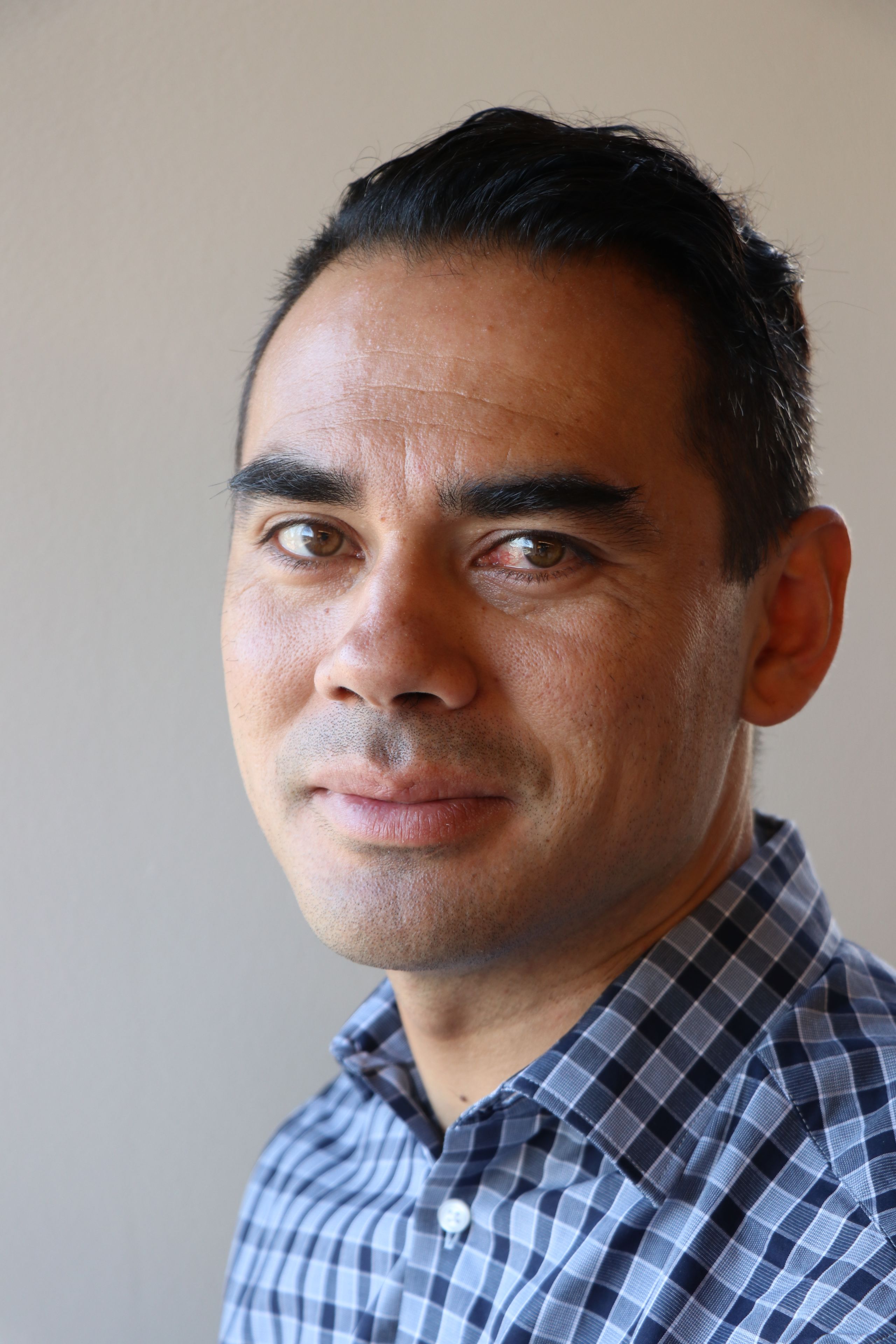
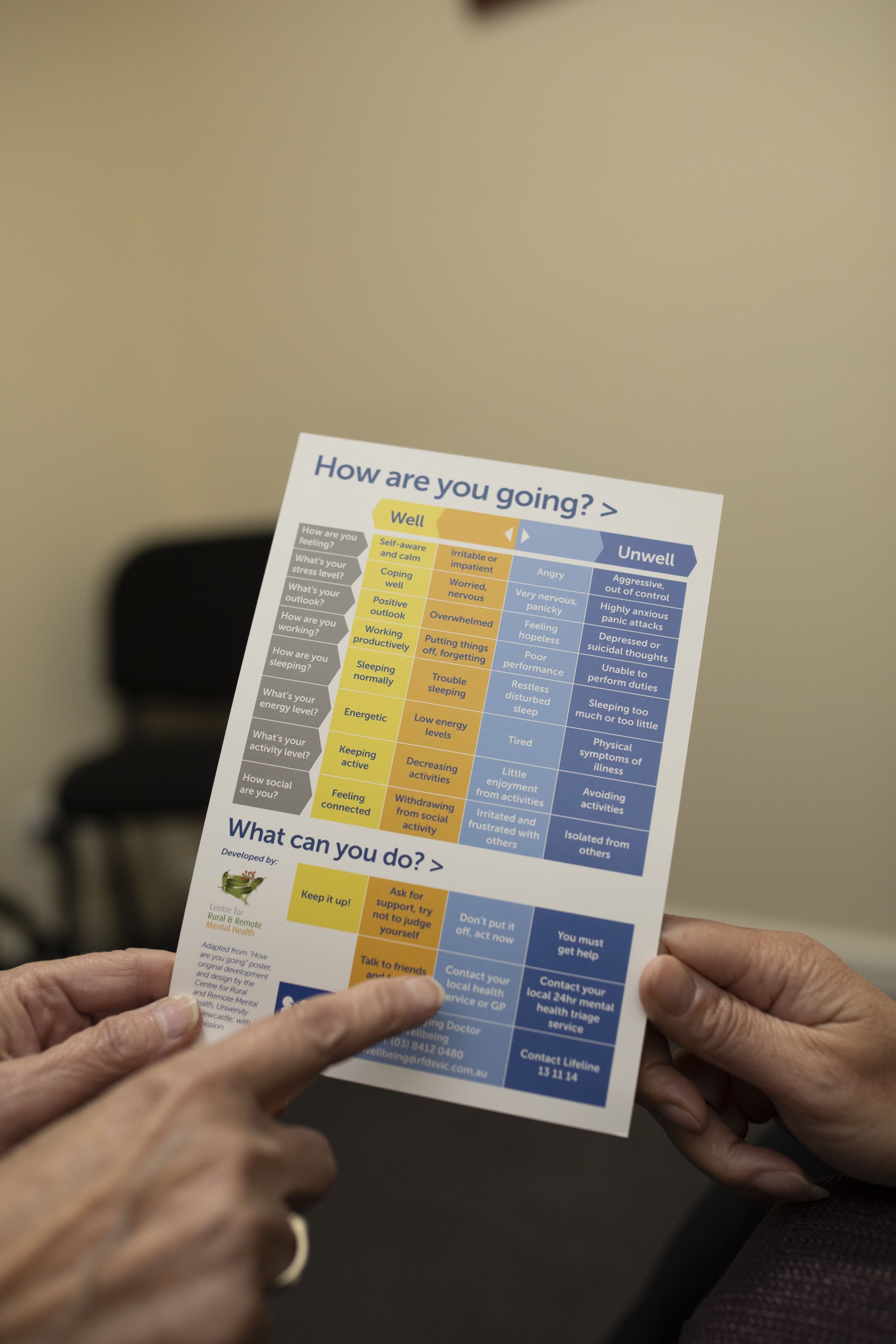
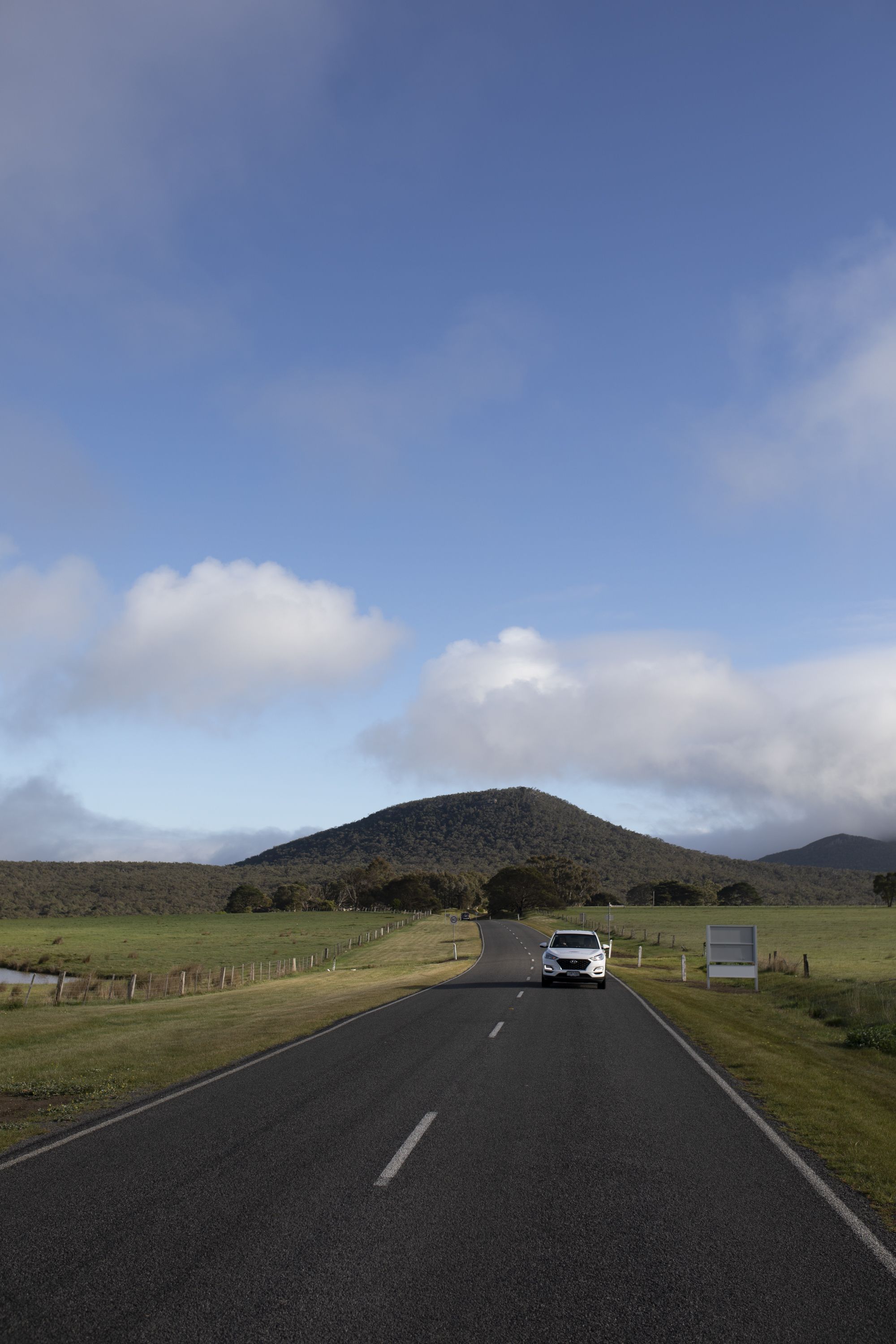
Supporting communities during COVID-19
Social isolation is something that Victorians have become more familiar with during the COVID-19 pandemic, and can add an extra layer of strain to people.
“I have elderly clients and while they're learning how to use FaceTime, they really miss going to family birthdays and having all the kids and grandkids around them. They really miss doing that in person. It's really drained a lot of people.
“Another impact is also people not knowing what they are allowed or supposed to do.
"One guy I know really wanted to go fishing, just on the local river, but he thought that he couldn't do that. Turns out that he was allowed to, but he thought he couldn't, so he was just sitting there stewing for ages because he really wanted to go fishing.”
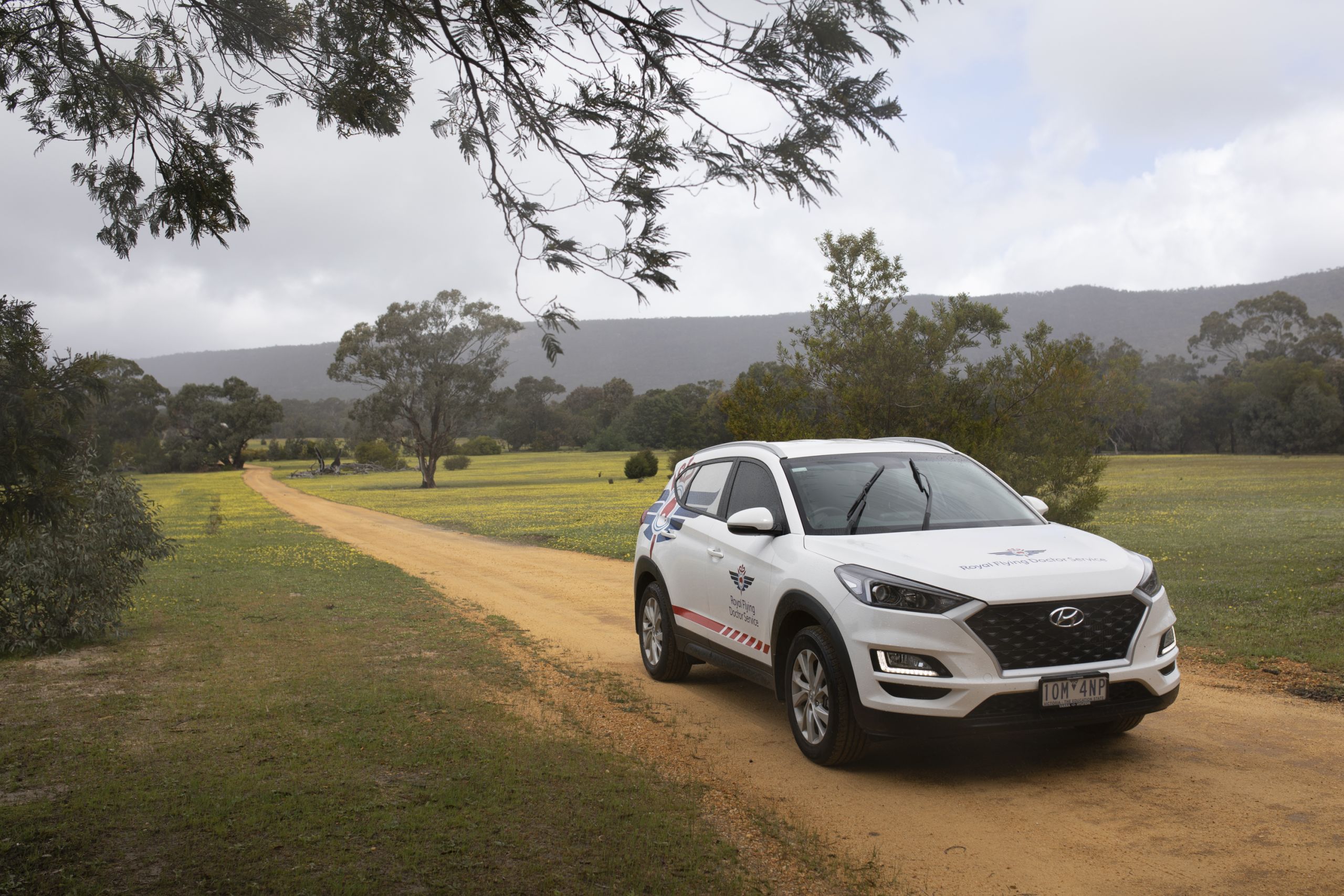
The need to actively look after your mental health has been brought to attention during COVID-19, and Leon says isn't such a bad thing.
“A lot of people are new to this thing called 'mental health care', but it’s never too late to start. There's always some potential there, no matter how old you are. I've got a client who's closer to 90 than he is to 85.
"There's always room to help as long as someone's willing to grow and learn, and accept that maybe they need some help with something.”

